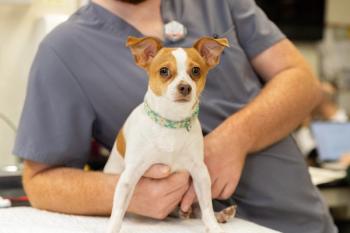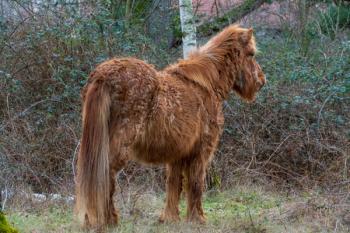
'Failure' happens-and it saves the lives of future patients
You'd like to think every surgery can be a success, but thats not reality. Here's how Dr. Bo Brock tries to learn from the not-so-great moments of veterinary practice.
Give yourself a moment. But don't give up. (Shutterstock)I just got off the phone with Dr. Dustin. I was trying my best to console him about a horse that had colic surgery two weeks ago that has since gone downhill and is gonna die. He's torn up about it and has worked on that critter day and night since the surgery to keep it going and make the owners smile again.
Dr. Dustin had to remove 24 feet of the horse's small intestine, which had become entangled and dead in an unfortunate series of events. He did a stellar job with technique and knowledge, but what was left was hard to live with, no matter who had performed the surgery.
Learning to be a surgeon is a lifelong mission. Colic surgery is never routine and you seldom see the same problem twice. It takes difficult decisions made at the spur of the moment. It's tough-I mean tough. And the emotional outcomes can be really taxing on a surgeon.
I told Dr. Dustin that this horse's death would pave the way for many horses to live in the future. The things we learn as veterinarians on each case can teach us more about the next one. I've done many of those surgeries, and many of them have died. I've cried, been angry, doubted my ability, wondered why I ever went to veterinary school and nearly quit … many times.
But here's the truth: I never quit. And Dr. Dustin won't either. I have known the emotions he's feeling and sure don't want him to have to experience them. But it's part of practice-and part of how good vets become great vets. To illustrate this, I told him about One Famous Eagle and how many times I tried and failed before that horse came into my life.
The tale of One Famous Eagle
The morning Dr. Blodgett called me to announce that a horse with colic was on the way to our clinic, I wasn't alarmed or excited in the least-until he told me it was One Famous Eagle, perhaps the most valuable quarter horse stud in the world. I felt the pressure immediately.
Luckily enough I had done a few thousand of these surgeries in my life, and I kept telling myself that even though he was worth a ton of money, he was still just a horse. Dr. Peter Rakestraw was working at the clinic at the time, and he's known around the world as a premier colic surgeon, so I calmed myself down and simply waited for the team to make the two-hour trip to Lamesa from the ranch.
We took the rascal straight to surgery. He was bad and no amount of testing was going to change that. When we got into the abdomen, it was quickly apparent that the small intestine was in dire straits. Dr. Rakestraw found the source of entrapment in the epiploic foramen and managed to exteriorize the badly damaged bowel. By the feel of it, several parts were obviously dead and several more feet were questionable.
We went about resecting and anastomosing the bowel. It was a rough surgery with as much pressure as a country vet could endure. The entire racing quarter horse world was watching and hoping and praying that what we did over the next few hours would save its most valuable contributor of incredibly fast horses.
While I was suturing those bowel ends together, I remembered all the things the many surgeries like this had taught me-all the things I do differently now than I did in the past because I learned and studied and failed and tried again. Many veterinarians and continuing education hours and surgeries had gone into preparing me for that moment.
That was several years ago and the Eagle is still soaring. He has produced horses that have won as much or more money and races than any other quarter horse of this time. He's alive. And he can thank all the horses that came before him in the lives of Peter Rakestraw and Bo Brock that were not so lucky but paved the way for this moment.
The power of the past
So I told Dr. Dustin that he did the best job possible on that horse, which had a very small chance to live no matter what. I told him to learn from every moment of the surgery and analyze if there was anything he would have done differently. But most of all I told him that somewhere there's a horse that's going to live because he's a great surgeon who cares deeply and studies hard-and also because he didn't give up.
Bo Brock, DVM, owns Brock Veterinary Clinic in Lamesa, Texas. His latest book is Crowded in the Middle of Nowhere: Tales of Humor and Healing From Rural America.
Newsletter
From exam room tips to practice management insights, get trusted veterinary news delivered straight to your inbox—subscribe to dvm360.





